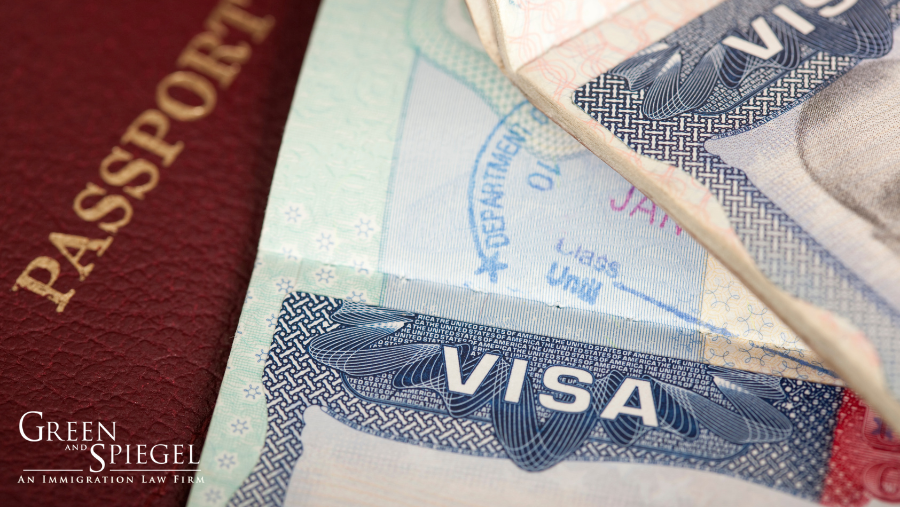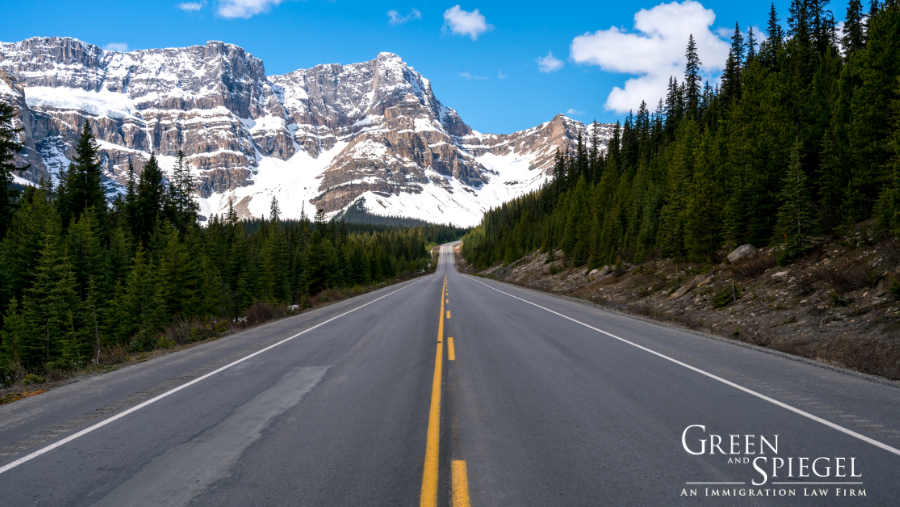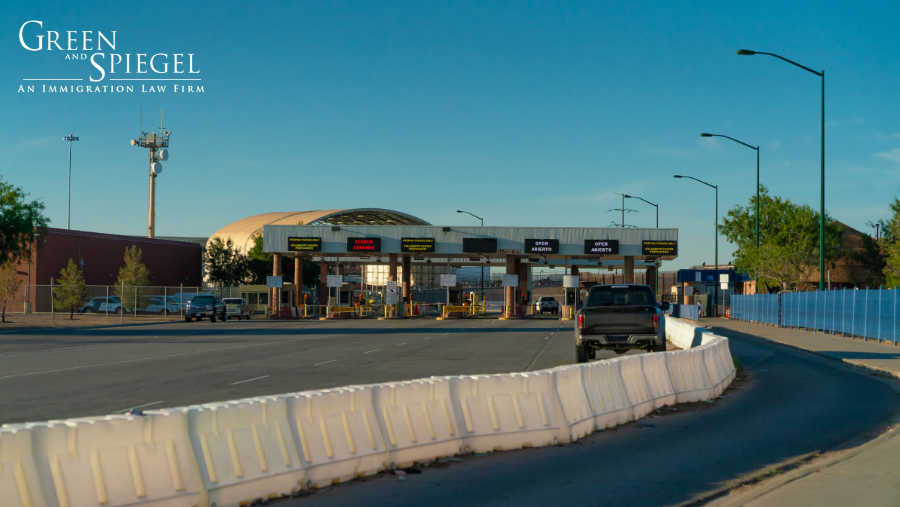Takeaways:
- Presidential Proclamation 10052, suspending H-1B, H-2B, J and L admissions, expired March 31, 2021.
- Ongoing 2019 novel coronavirus (“COVID-19”) public health travel restrictions remain in place requiring travelers from certain areas to qualify for national interest exceptions.
- U.S. Consulates are still operating at reduced levels and will have to work through backlogs as the pandemic ends.
Background:
Proclamation 10052 – “Suspension of Entry of Immigrants and Nonimmigrants Who Present a Risk to the United States Labor Market During the Economic Recovery Following the 2019 Novel Coronavirus Outbreak” (“Presidential Proclamation 10052”) was published on April 22, 2020 and extended through March 31, 2021. However, it has now expired and, in an April 1, 2021 notice, the U.S. Department of State (DOS) writes:
Presidential Proclamation 10052, which temporarily suspended the entry of certain H-1B, H-2B, J (for certain categories within the Exchange Visitor Program), and L nonimmigrants, expired on March 31, 2021.
Visa applicants who have not yet been interviewed or scheduled for an interview will have their applications prioritized and processed in accordance with existing phased resumption of visa services guidance. Visa applicants who were previously refused visas due to the restrictions of Presidential Proclamation 10052 may reapply by submitting a new application including a new fee.
The resumption of routine visa services, prioritized after services to U.S. citizens, is occurring on a post-by-post basis, consistent with the Department’s guidance for safely returning our workforce to Department facilities. U.S. Embassies and Consulates have continued to provide emergency and mission-critical visa services since March 2020 and will continue to do so as they are able. As post-specific conditions improve, our missions will begin providing additional services, culminating eventually in a complete resumption of routine visa services. Applicants should check the website of their nearest U.S. Embassy or Consulate for updates on the services that post is currently offering.
Presidential Proclamation 10052 is expired, but travel restrictions remain:
- 14 Day Travel Bans remain in place for travelers from the United Kingdom, Republic of Ireland, the Schengen Area, Brazil, China, South Africa, and Iran.
- Proclamation Exemptions permit U.S. citizens; lawful permanent residents; spouses and children of U.S. citizens to travel if they document the relationship; and noncitizens in privileged visa categories to travel to the United States.
- National Interest Exceptions (NIE) may permit noncitizens whose visa and role are deemed to be in the national interest to travel to the United States but they are difficult to obtain.
- DOS operations have been disrupted by COVID-19 in the U.S. and in host countries. This has created significant backlogs which are likely to persist after the pandemic is over.
Three geographic travel restrictions remain in force for those physically present in the affected countries during the 14 days prior to seeking to enter the United States:
- January 31, 2020, suspending travel from those who have been in China, excluding the Special Administrative Regions of Hong Kong and Macau;
- February 29, 2020, suspending travel for those who have been in in Iran; and
- January 25, 2021, suspending travel for those who have been in the U.K., Ireland, the Schengen Area, Brazil, China, and South Africa.
The travel restrictions do not apply to those subject to Proclamation Exemptions:
· U.S. Citizens
· Lawful permanent residents
· Foreign diplomats traveling to the United States on A or G visas
· Certain family members of U.S. citizens or lawful permanent residents including:
-
- spouses
- minor children
- parents (provided that his/her U.S. citizen or lawful permanent resident child is unmarried and under the age of 21)
- siblings (provided that both the sibling and the U.S. citizen or lawful permanent resident are unmarried and under the age of 21)
· Air and sea crew traveling to the United States on C, D, or C1/D visas.
Travel restrictions apply to noncitizens who cannot (generally) establish that it is in American interest to grant a National Interest Exception (NIE) for the trip:
In the proclamations which set the travel restrictions for noncitizens who have been physically present in China, Iran, the Schengen Area, the U.K., Ireland, South Africa, or Brazil during the fourteen days prior to seeking to enter the United States, the government carves out a “National Interest Exception” for those “whose entry would be in the national interest, as determined by the Secretary of State, the Secretary of Homeland Security, or their designees.” However, the U.S. Secretary of State further limited the NIE for those in Ireland, the U.K., and the Schengen Area in the March 2, 2021 “National Interest Exceptions for Certain Travelers from the Schengen Area, United Kingdom, and Ireland” (“Directive”).
In addition to leaving the requirement that travelers from these locations demonstrate that a significant national interest is furthered by their trip to the United States, the March 2, 2021 Directive restricts the NIEs to “certain travelers seeking to provide vital support for critical infrastructure,” those whose work is in one of the industrial sectors, identified by the U.S. Department of Homeland Security (DHS) Cybersecurity & Infrastructure Security Agency as those which “are considered so vital to the United States that their incapacitation or destruction would have a debilitating effect on security, national economic security, national public health or safety, and any combination thereof.”
The March 2, 2021 Secretary of State directive also identifies academics, students and journalists as generally eligible to apply for NIEs as well as those traveling for humanitarian, public health, and national security reasons. Those whose national interest claims are tied to growing the U.S. economy or creating jobs in the U.S. may also still be eligible but the March 2, 2021 directive removes embassy and consular authority to grant NIEs in such cases to DOS headquarters in Washington, D.C.
Navigating the travel restrictions and various alternatives and quarantine requirements has been difficult for many noncitizen travelers. It may be helpful to engage competent counsel to advise, especially since NIE Request denials are not subject to oversight and have no appeals. Green and Spiegel is monitoring this situation closely and will continue to update our blog and provide E-Alerts to advise on the latest developments. Our office number is (215)395-8959. We can also be reached via the web.
DISCLAIMER: Please note, nothing posted here is legal advice, nor does reading anything here or communicating with a Green and Spiegel attorney, on or through social media, form an attorney/client relationship. Choosing an attorney is a serious matter and should not be based solely or primarily on advertising or any other public communication of an attorney or law firm.





